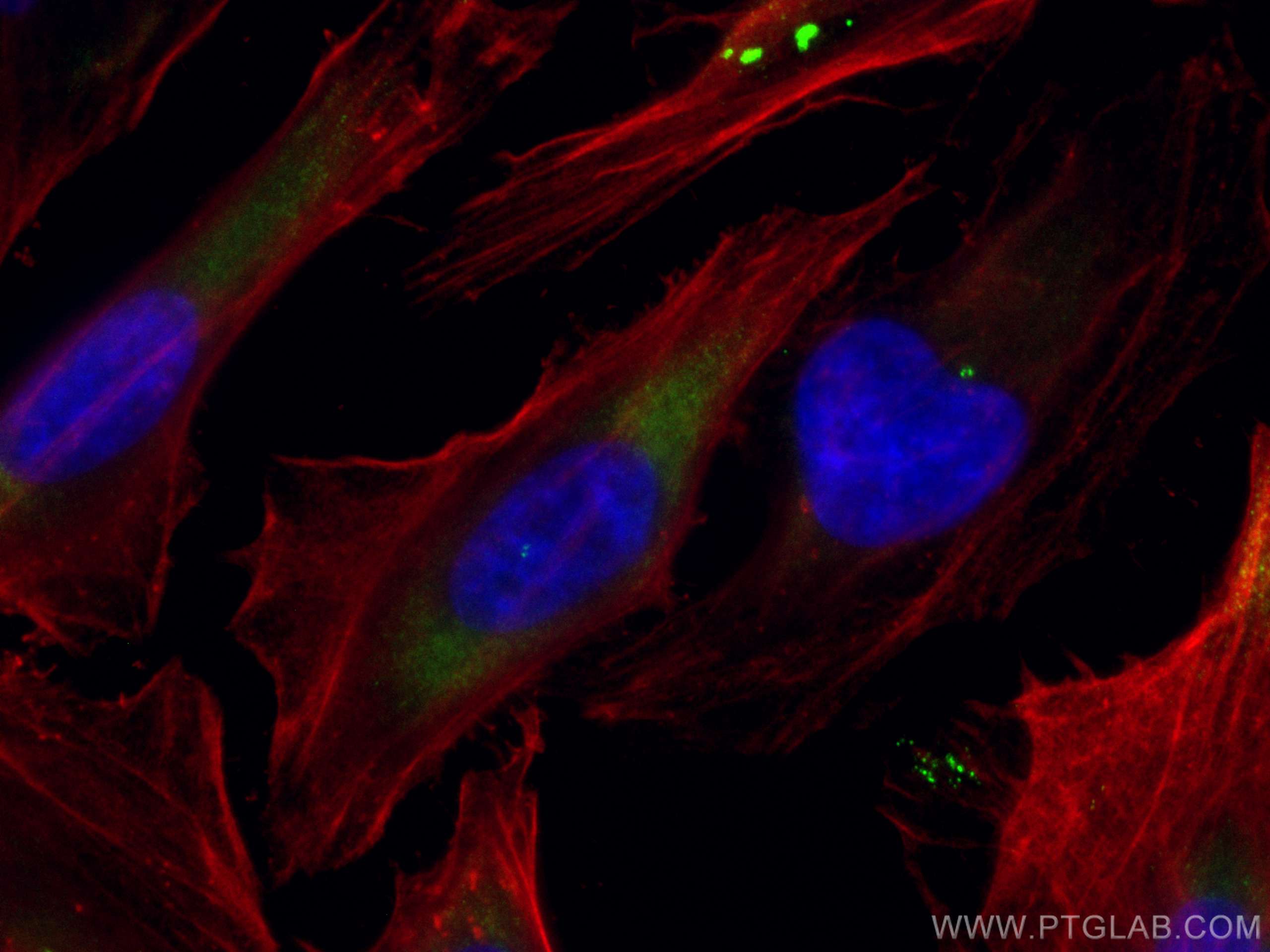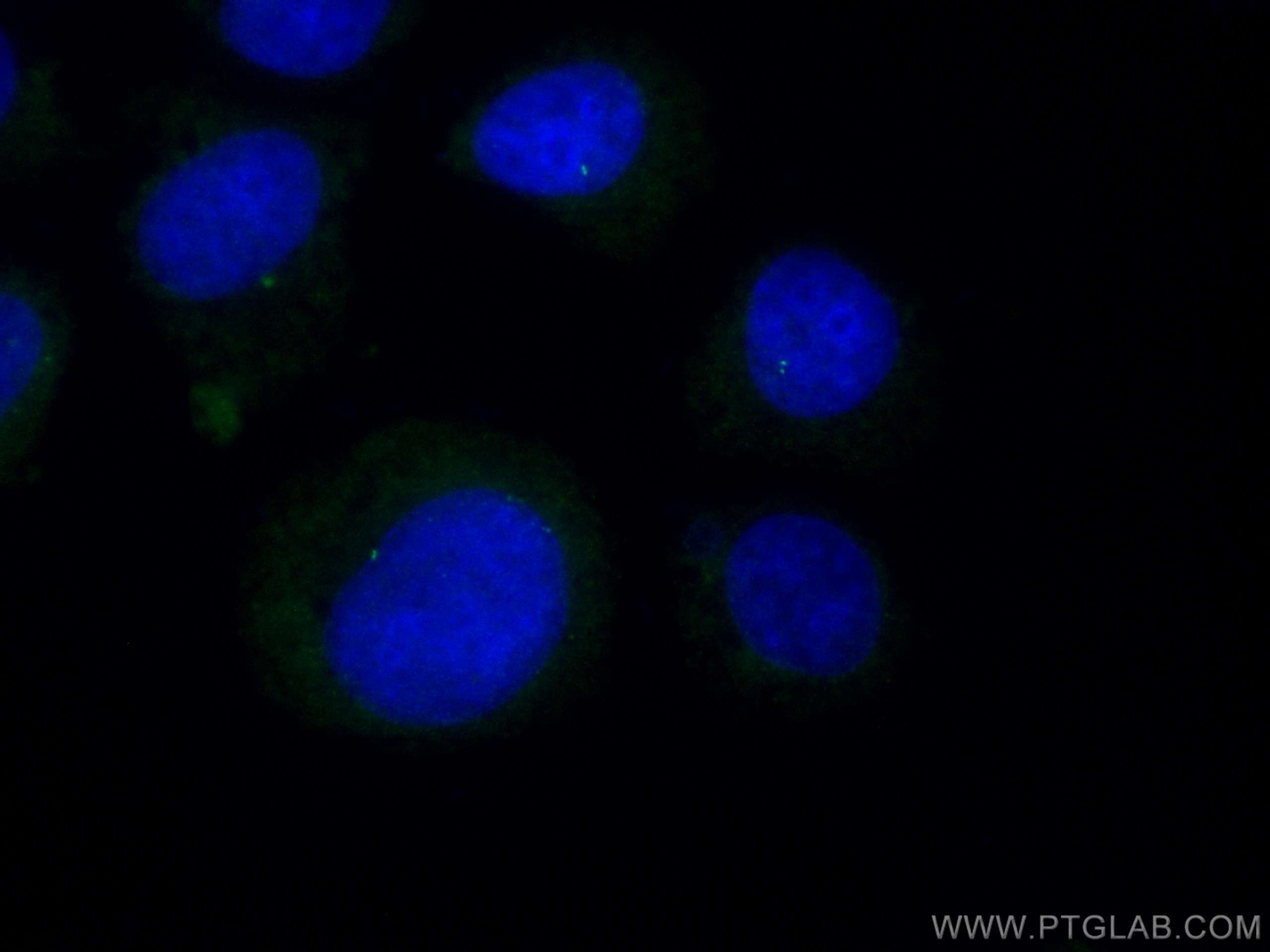CEP250/CNAP1 Polyklonaler Antikörper
CEP250/CNAP1 Polyklonal Antikörper für IF
Wirt / Isotyp
Kaninchen / IgG
Getestete Reaktivität
human
Anwendung
IF
Konjugation
CoraLite® Plus 488 Fluorescent Dye
Kat-Nr. : CL488-14498
Synonyme
Galerie der Validierungsdaten
Geprüfte Anwendungen
| Erfolgreiche Detektion in IF | HeLa-Zellen, MCF-7-Zellen |
Empfohlene Verdünnung
| Anwendung | Verdünnung |
|---|---|
| Immunfluoreszenz (IF) | IF : 1:50-1:500 |
| It is recommended that this reagent should be titrated in each testing system to obtain optimal results. | |
| Sample-dependent, check data in validation data gallery | |
Produktinformation
CL488-14498 bindet in IF CEP250/CNAP1 und zeigt Reaktivität mit human
| Getestete Reaktivität | human |
| Wirt / Isotyp | Kaninchen / IgG |
| Klonalität | Polyklonal |
| Typ | Antikörper |
| Immunogen | CEP250/CNAP1 fusion protein Ag5925 |
| Vollständiger Name | centrosomal protein 250kDa |
| Berechnetes Molekulargewicht | 281 kDa |
| Beobachtetes Molekulargewicht | 250 kDa |
| GenBank-Zugangsnummer | BC001433 |
| Gene symbol | CEP250 |
| Gene ID (NCBI) | 11190 |
| Konjugation | CoraLite® Plus 488 Fluorescent Dye |
| Excitation/Emission maxima wavelengths | 493 nm / 522 nm |
| Form | Liquid |
| Reinigungsmethode | Antigen-Affinitätsreinigung |
| Lagerungspuffer | BS mit 50% Glyzerin, 0,05% Proclin300, 0,5% BSA, pH 7,3. |
| Lagerungsbedingungen | Bei -20°C lagern. Vor Licht schützen. Aliquotieren ist bei -20oC Lagerung nicht notwendig. 20ul Größen enthalten 0,1% BSA. |
Hintergrundinformationen
CEP250, also known as C-Nap1, is a 250 kDa coiled-coil protein that localizes to the proximal ends of mother and daughter centrioles. It is required for centriole-centriole cohesion during interphase of the cell cycle. It dissociates from the centrosomes when parental centrioles separate at the beginning of mitosis. The protein associates with and is phosphorylated by NIMA-related kinase 2, which is also associated with the centrosome.
Protokolle
| Produktspezifische Protokolle | |
|---|---|
| IF protocol for CL Plus 488 CEP250/CNAP1 antibody CL488-14498 | Protokoll herunterladen |
| Standard-Protokolle | |
|---|---|
| Klicken Sie hier, um unsere Standardprotokolle anzuzeigen |



